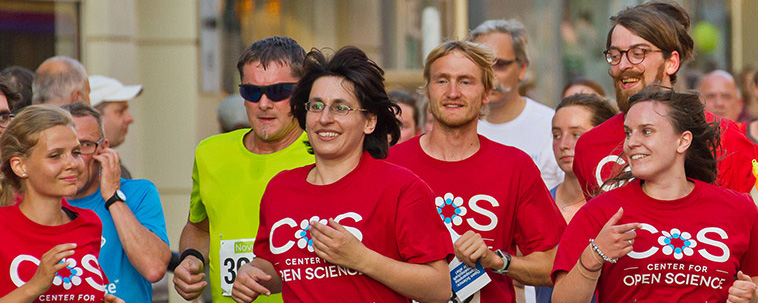
Photo: Christian Schloegl
Open Science
The modern knowledge-based society is driven by the constant innovation and scientific progress. The success of this future development rests critically on the integrity, reproducibility, and accessibility of research. The Open Science movement is thus dedicated to ensuring that scientific findings are trustworthy and replicable, to make the outcomes of research freely available to the scientific community, and to improve the dissemination of scientific results to the public.
Open Science is based on six pillars:
By Andreas E. Neuhold (Own work) [CC BY 3.0], via Wikimedia Commons
Open Data: the free access to open data increases transparency and facilitates data sharing, collaboration and re-use of a valuable resource. Access to data improves data integrity by allowing others to check whether the outcomes of published analyses are reproducible.
Open Source: describes the free access to computer-code and software. Scientific research requires highly specialized and dedicated software, and open source decreases costs and facilitates (joint) further developments and software improvements.
Open Methodology: access to research methods improves reproducibility, increases the clarity of research approaches and allows researchers to make use of their colleagues’ experiences in the development of scientific approaches. Access to researchers’ a-priori hypotheses and planned analyses is an important means to ensure the integrity of data and their interpretation.
Open Peer Review: peer review is a standard quality assurance tool in scientific publishing. Traditionally, only the outcome of the peer review process is made available in the form of a publication. Through open peer review, each manuscript version and the reviewer comments can be accessed and the reviewer’s identities are revealed. This allows readers to assess the development of arguments and ideas presented in a paper, facilitates a fair and open debate between authors and reviewers, and acknowledges the reviewers’ contributions.
Open Access: scientific publications are among the most important outcome of research projects; traditionally, these papers have been published in journals operating with a subscription-based business model. Depending on the available library access, publications may therefore remain hidden behind pay-walls. To overcome this, full open access journals make all their publications freely available on the internet; authors may also self-archive their publications in freely accessible open repositories.
Open Educational Resources: this describes freely available material for teaching purposes, which can be used, adapted and redistributed with limited or no restrictions. By making this material freely available, the fast dissemination of scientific knowledge is supported without financial hindrances to schools and other educational bodies.
Open Science in the Leibniz ScienceCampus

Members of the Leibniz ScienceCampus are involved in various initiatives promoting open science, among them the ManyPrimates network, the ManyBabies Network, and the International Neuroimaging Data-Sharing Initiative. We make the vast majority of our publications openly accessible via Open Access, and make the underlying data of an increasing number of publications accessible in open data repositories. Likewise, we regularly pre-register studies on platforms such as OSF.
Through our Seed Fund program (now replaced by the Audacity Fund program) we supported replication studies as part of the ManyBabies Network. In our statistics training program we apply Open source software packages (e.g. R) exclusively, promote making code publically available, and release own R packages.
Funding for Open Access Publications is available through our parent organizations, the DPZ and the University of Göttingen; repositories are provided by the Leibniz Association (Leibniz Open) and the University of Göttingen (GRO.publications and GRO.data).
In the years 2022-2024 (as at: 21.10.2024), over 80% of our publications appeared as open access; this puts us well above the international average, according to which only around 73% of all publications are open access (source: Open Access Monitor). In addition, for around 55% of our publications based on primary data (i.e. no reviews, commentaries, etc.), the primary data was made publicly accessible.
Open Science Events
- Schultze-Gerlach T: Open Science; talk at the Annual ScienceCampus Student Retreat, Akademie Waldschlösschen, October 20, 2016
- Run for Open Science, Göttinger Altstadtlauf, June 21 2017
- Kulke L: Prä-Registrierung von wissenschaftlichen Studien; talk, room 1.134, Goßlerstraße 14; July 13, 2017, 6 p.m.
- Arslan R: Using formr.org to build complex R-driven online studies with personalised feedback; workshop, room 1.136, Goßlerstraße 14; Sept. 24-25 2018, 9 a.m.-5 p.m.
- Movie "Paywall - The Business of Scholarship"; organised by the State and University Library Göttingen, with support from the Leibniz ScienceCampus; Historical Building of the SUB, Papendieck 14; October 24th, 2018, 4.15-7.30 p.m.
- Jones, BC: Improving Social Perception Research Through Open Science Initiatives; talk, room 1.134, Goßlerstraße 14; December 6, 2018, 4.15 p.m.

